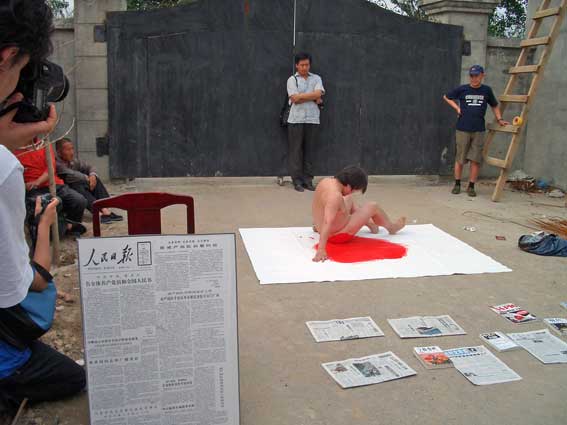

Then ARAI started to fill magazines and newspapers of Japanese and Chinese
in his mouth
and shout "We have good constitutions" in Chinese, Japanese and English.
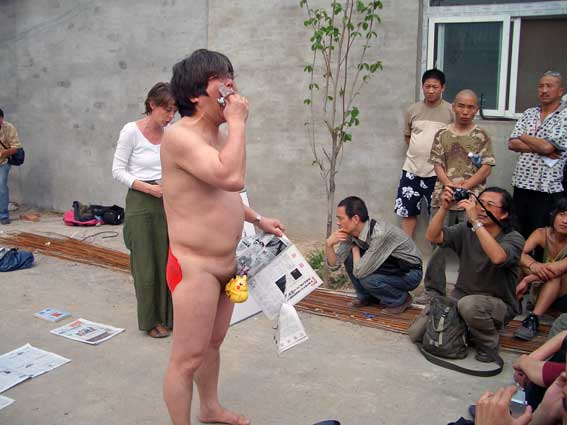
2 audience were invited to read laud Chinese constitution (left) or Japanese constitution (right)
In front of them, There are Copy of
The daily People news run by the government, the day after Tiananmen Square
Incident (1989.6.5) ,left
and
Japanese ASAHI newspaper same day(1989.6.5), right
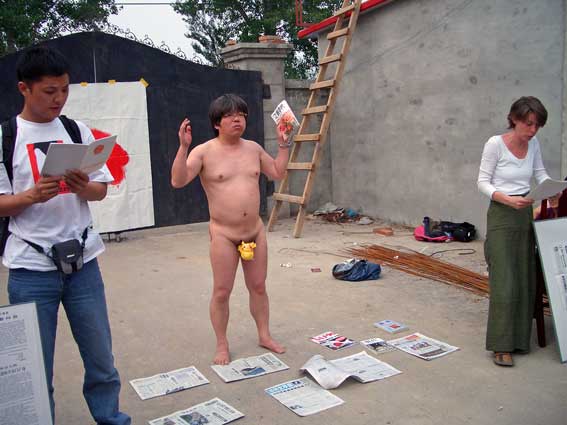
ARAI showed newspapers and magazines and shouted "We have good constitutions."
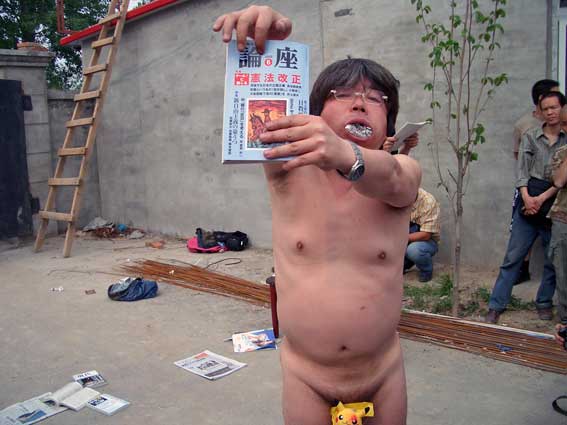
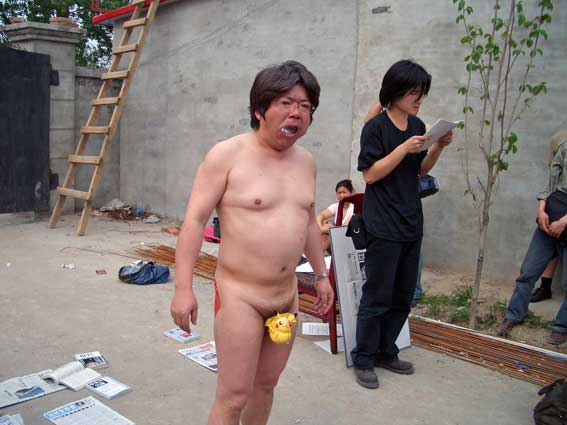
The Constitution of the People's Republic of China (abstract)
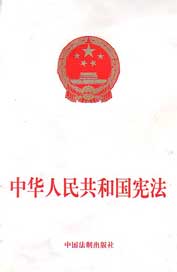
CHAPTER I. General Principles
Article 1. Socialist state
The People's Republic of China is a socialist state under the people's democratic dictatorship led by the working class and based on the alliance of workers and peasants.
The socialist system is the basic system of the People's Republic of China.
Disruption of the socialist system by any organization or individual is
prohibited.
Article 2. Power belongs to the
people
All power in the People's Republic of China belongs to the people.
The National People's Congress and the local people's congresses at various
levels are the organs through which the people exercise state power.
The people administer state affairs and manage economic, cultural and social
affairs through various channels and in various ways in accordance with
the law.
Article 3. Democracy
The state organs of the People's Republic of China apply the principle
of democratic centralism.
The National People's Congress and the local people's congresses at various
levels are constituted through democratic elections. They are responsible
to the people and subject to their supervision.
All administrative, judicial and procuratorial organs of the state are
created by the people's congresses to which they are responsible and by
which they are supervised.
The divisions of functions and powers between the central and local state
organs is guided by the principle of giving full scope to the initiative
and enthusiasm of the local authorities under the unified leadership of
the central authorities.
Article 4. Minority rights
All nationalities in the People's Republic of China are equal. The state protects the lawful rights and interests of the minority nationalities
and upholds and develops a relationship of equality, unity and mutual assistance
among all of China's nationalities. Discrimination against and oppression
of any nationality are prohibited; any act which undermines the unity of
the nationalities or instigates division is prohibited.
The state assists areas inhabited by minority nationalities accelerating
their economic and cultural development according to the characteristics
and needs of the various minority nationalities.
Regional autonomy is practiced in areas where people of minority nationalities live in concentrated communities; in these areas organs of self- government are established to exercise the power of autonomy. All national autonomous areas are integral parts of the People's Republic of China.
All nationalities have the freedom to use and develop their own spoken and written languages and to preserve or reform their own folkways and customs.
The daily People newspaper run by the government, the day after Tiananmen
Square Incident (1989.6.5)
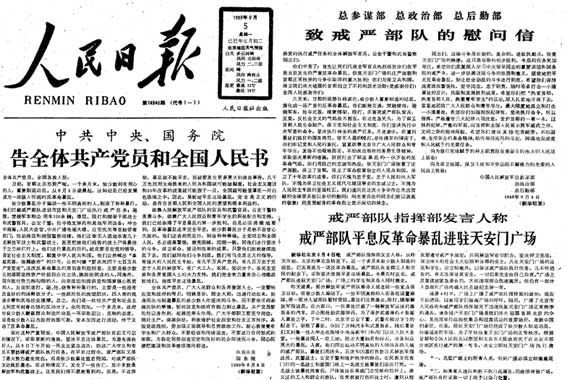
Yesterday night
Peoples Army of martial law suppressed riot of counter-revolutionists in
Tiananmen Square.
The Constitution of Japan (abstract)
CHAPTER II. RENUNCIATION OF WAR
Article 9. Aspiring sincerely to an international peace
based on justice and order, the Japanese
people forever renounce war as a sovereign
right of the nation and the threat or use
of force as means of settling international
disputes.
In order to accomplish the aim of the preceding paragraph, land, sea, and
air forces, as well as other war potential, will never be maintained. The right of belligerency of the state will not be recognized.
ASAHI newspaper major in Japan the day after Tiananmen Square Incident (1989.6.5)
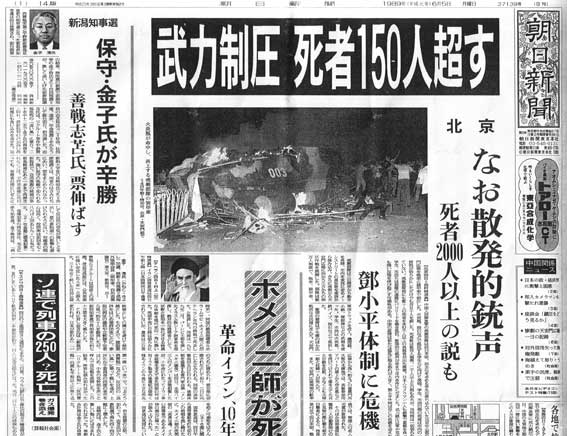
The army gained control of the people in Tiananmen Square, 150 people were
killed
and some witness said over 2000 people were killed.
The opinion magazine "RONZA" is published by ASAHI newspaper above.
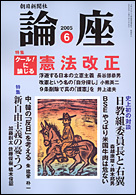
It features special articles on revisionising the constitution especially
chapter II article 9,
June 2005 issue
ARAI Shin-ichi (Japan)
"Tourists #11 We Have Good Constitutions"
©ARAIart.jp